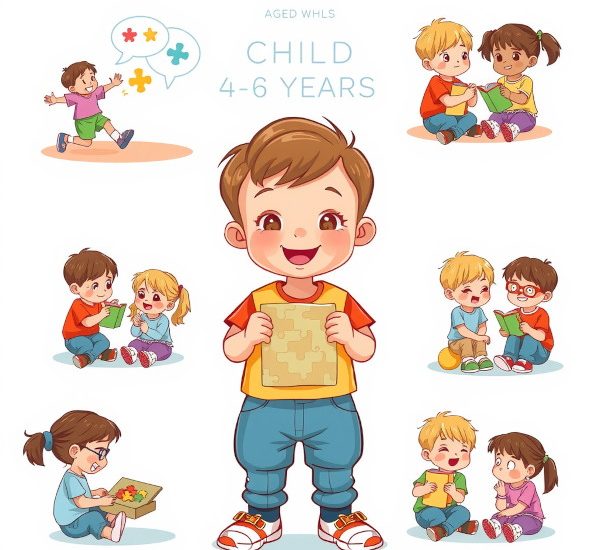This week, I had the unfortunate experience of taking both of my children to the hospital, and my interaction with the medical staff left me feeling increasingly traumatized, concerned, or alarmed – it’s difficult to find the right words to describe it. The lack of empathy, kindness, and compassion towards children, mothers, and people, in general, seems to be alarming and on the verge of disappearing, unfortunately. Of course, just because this was my experience doesn’t mean it’s the same everywhere, and I don’t intend to criticize healthcare professionals. That is not the purpose of this post. Instead, I want to draw attention to a deeper issue, no matter how small it may seem, and sound the alarm.
I find it incredible that in this century, where information is just a click away and we have evolved in so many ways, we still resort to intimidation or fear when it comes to children cooperating during medical interventions. An example is related to my 3-year-old daughter who needed an IV. Before going to the hospital, we informed her about what was going to happen. We told her that she would receive an injection, that it would hurt, but that I would be there with her, holding her in my arms to ease the pain and help her get through it. I spoke to her at her eye level, and she looked at me, nodded, and understood without protesting in any way. Everything seemed fine until we arrived at the hospital, and the medical staff began the procedure. Naturally, my daughter started crying, which is a completely normal process for a child. There are even adults who fear such situations, let alone a child. That’s when it all started: she panicked, and I held her in my arms, speaking gently to her. However, the people there began using derogatory terms that infuriated and deeply upset me. “Come on, stop crying, it doesn’t hurt, how ugly you are, the gypsy will come and take you away in a sack if you keep crying, I’ll take a picture of you to see how you look, just be quiet.” I did my best to restrain myself from having an outburst there, but I asked them to leave my child alone and let her cry because it is normal when feeling threatened. I admit I wished I had the courage and strength to tell them that this harsh approach wouldn’t make any child cooperate, but there was no one to discuss with because everyone seemed shocked to see me staying calm and not saying anything harsh or threatening, while I allowed my child to cry, holding her tightly in my arms.
What I want to emphasize with these aspects is why we should tell a child that they won’t feel any pain during an injection, for example, when it’s evident that they will feel pain. How do you think the child perceives this? They might say to themselves, “Mom lied to me, she said it wouldn’t hurt, but it hurt a lot.” Children have an incredible trust in us, their parents, and when we tell them the truth, they learn to trust us. However, if we lie to them, they can completely lose their trust in us. Let’s take the example of this particular aspect, which may seem insignificant to some parents. In any situation or aspect where we don’t tell them the truth, the child learns whether they can rely on us or not, whether they will come to us when they need emotional support, when they go to kindergarten, when they go to school, when they become teenagers. Trust is learned from the very beginning of a child’s life. If a baby cries and the mother doesn’t pick them up because she thinks it will spoil them, that baby has already learned a defense mechanism regarding survival. They might say to themselves, “Anyway, I’m crying in vain because no one comes to pick me up, I better stay quiet.” It’s important to understand that this behavior doesn’t indicate that the child is disobedient or well-behaved; it can be a sign of the trauma they are going through.
This is an aspect frequently encountered not only in hospitals but also in playgrounds or in interactions with parents and grandparents. Children are lied to and threatened by their own parents in order to achieve certain desired behaviors or outcomes. This type of behavior seems to be spreading and becoming an increasingly common problem.
Our children are incredibly intelligent and capable of understanding various aspects, regardless of their age. We just need to have trust in them and convey this trust, no matter how young they may seem at the ages of 1, 2, or 3. It is important to rely on their potential and abilities and provide them with appropriate support and guidance, without resorting to lies or threats.
Understanding and respect for children should be fundamental in our approach as responsible parents and adults. We must remember that the relationship of trust and respect built with our children in their childhood will have a significant impact on their development and long-term interpersonal relationships.
Don’t be surprised, dear parents, when your children lie, manipulate, or hide things, or even when they don’t follow your belief in God. These issues related to trust in people and in society are often based on small but significant experiences. All these behaviors have one root cause: a lack of trust in parents. Why should they trust in a God they can’t see or feel, when they can’t trust the smallest things in their own lives? I’m not suggesting that God cannot perform miracles or change hearts – that is not my intention. However, children who go through experiences where their trust is destroyed, such as being lied to, manipulated, and threatened by their parents to obtain their cooperation, may develop difficulties in trusting themselves and others, and their self-esteem may be consistently affected. And as a parent now, I have always lived with lies, manipulation, and threats from my parents to obtain my cooperation, and my trust in the world and in God has been severely tested. Even now, in adulthood, I constantly struggle with this aspect and have moments where it is difficult for me to fully trust in God.
6 ways to build a trusting relationship with our children
Below, I will refer to several aspects that have greatly helped me and continue to help me develop a healthy and trusting relationship with my daughter, a trust that will accompany her throughout her life.
- Open and honest communication: I have learned to communicate openly with my daughter, to explain things to her in an age-appropriate manner, and to answer her questions honestly. This transparency and honesty in communication have helped us build a solid foundation of trust.
- Mutual respect: In my relationship with my daughter, I have learned to respect her as an individual and to provide her with space and autonomy within appropriate boundaries for her age. I encourage her opinions and listen attentively, thus reinforcing her sense of self-confidence and trust in our relationship.
- Empathy and understanding: I have always strived to put myself in her shoes and understand her perspective and feelings. I have learned to be empathetic and show her that I support her and care about her emotional well-being.
- Keeping promises: By being consistent in fulfilling the promises I made, I have demonstrated that I can be trusted and relied upon. This has strengthened the trust in our relationship and created a sense of security.
- Acceptance of mistakes: I have learned to acknowledge when I make mistakes and apologize when necessary. Through this, I have shown my daughter that nobody is perfect, but that we can learn from mistakes and repair relationships through communication and responsibility.
- Building quality moments: I have realized that investing time spent together is crucial in building our relationship. I have created special moments of play, conversations, and adventures together, which have helped us get to know each other better and enjoy each other’s company.
These aspects continue to guide us in our relationship, building the foundation of a strong trust that will accompany my daughter throughout her life. The real proof of trust is when your child makes themselves vulnerable in front of you, without fear or shame, feeling comfortable and confident that they have your support.
If you have found this information helpful and believe it can be useful to other parents, I encourage you to share it. Sharing this article can help reach a larger number of parents, assisting them in developing and maintaining healthy, trusting relationships with their children.




